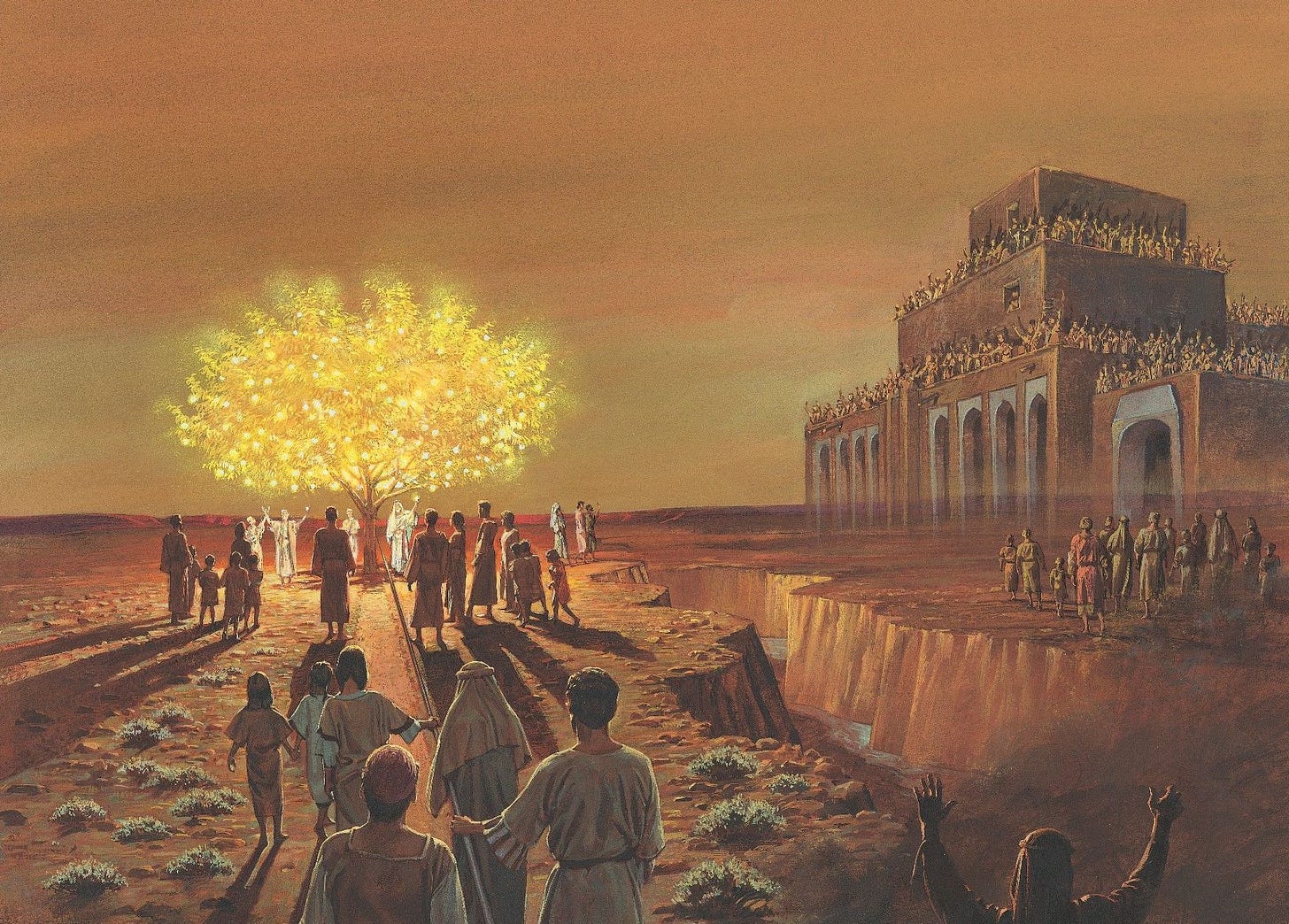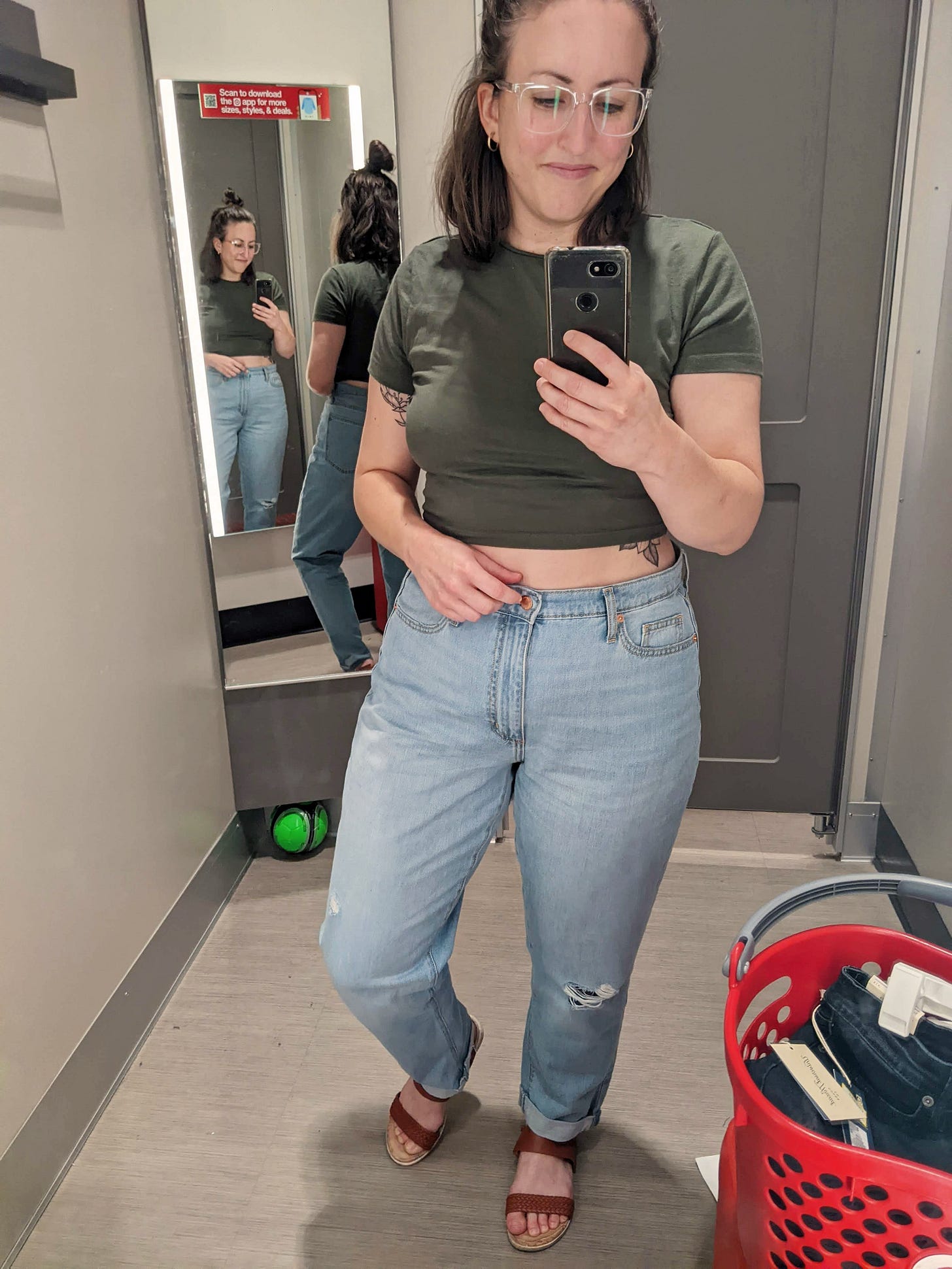Better on the Other Side
Thoughts on nuanced faith and post-Mormonism, for those in the middle of their own faith journeys
“When we are fully committed and “all in,” heaven shakes for our good.”
Gary Sabin, “Stand Up Inside and Be All In,” April 2017 General Conference
I scribbled those words on a piece of paper and kept it with me for years. When I first heard them, I was 28-years-old, healing from a fresh heartache, training for my first half marathon, serving as Family History co-chair at church–and, as Google Photos reminded me, I was also teaching yoga, sharing about the “magic” of essential oils, and having crisis texts with my best friend as I worked to heal my heart. I was trying to be the darn best, unmarried, ripe for the picking, Utah Mormon woman I could. Fit, spiritual, and basically the “Elect-Woman” of the 21st century. (D&C 25:3)
It would still be over two years until I began my faith “crisis” (which was really just a journey at that point), and over four years until I left the LDS church altogether.
I held to those promises for years. I counted on heaven to shake for my good because I was fully committed and “all in” with the “one true church.”
I worked for years to be that person. I wasn’t necessarily NOT being myself, but I was trying to fit myself into a very particular box. Or, let’s try this metaphor: I was trying to fit myself into pants that were two sizes too small–I could do it, but it didn’t feel great–and maybe it was a little hard to breathe.
For some people, these are the ideal pants (church), and I kept telling myself that for years. People said these were the best pants, right? So they should fit, right? I just need to stretch a bit, or suck it in. Or maybe if I lose a little weight, they’ll fit.

And then I unbuttoned the top button, and I could BREATHE!!!! We’ll call this nuanced faith.
And then I continued to unzip the pants bit by bit (deconstruction).
And then, I realized that these pants just don’t fit me, so I took them off.
Maybe I’ll find another pair of pants that are more my size, but right now, I’m pretty good going pants-less. (Okay, I think the metaphor should end here.)
I was always taught that people who left the church were miserable. I was also taught that people who were not members of the church couldn’t be with their families in the afterlife. Logically, believing these teachings, it was only reasonable that I stay in the church.
But, what about everyone else?
There are countless people who are better Christians than I am–I knew that even when I was hustling for worth back in 2017. What about them? Are they going to be denied heaven just because they didn’t go through a very specific building–the LDS Temple?
Gratefully, I’m not the only one who has considered this. In 2020, Patrick Q. Mason released his book Restoration: God’s Call to the 21st-Century World. In it, he notes that only two-tenths of one percent of the world’s population are members of the LDS Church, and argues that “divine love, favor, and revelation” are not limited to this mere two-tenths of one percent of the world’s population.
He states, “What if we…consider the ways in which God has graced not just individual women and men but also whole cultures and communities with special gifts to be shared for the benefit of all? When we do this, we begin to see how God has endowed various groups–including other religions–with particular gifts and callings that are designed to bless the world.” (45)
He then notes the particular doctrines that Mormonism brings to the table. While I no longer believe those doctrines, I appreciate the work Mason is doing to bridge the space between Mormons and non-Mormons.
When I was active in the Mormon church, leaving never even crossed my mind. Early in the Book of Mormon, we read about “Lehi’s Dream,” which depicts the faithful “holding to the rod” as they journey toward the Tree of Life, while the sinners were off partying in the “great and spacious building” (the world). They were lost. As I child, I sang, “Hold to the rod, the iron rod; 'Tis strong, and bright, and true. The iron rod is the word of God;. 'Twill safely guide us through.”
It was an “us vs. them” mentality, and we hoped that “they” would figure out that we knew the correct path forward.
But as I continued on my faith journey–and as Mason expressed in his book–maybe “they” weren’t as lost and miserable as I had been taught.
I’ve always been a generally “good” person, but there were always outside factors influencing that:
Growing up, I was desperate not to disappoint my parents. This is probably quite normal.
During college, it shifted from not wanting to disappoint my parents to not wanting to disappoint whatever guy I was dating at the time (and wow, there are some crummy guys out there–and they were all from Utah and all “devout priesthood holders”).
And, as I dated more, it grew from fear of disappointing boyfriends, to fear of disappointing my bishop. I didn’t necessarily think God would be disappointed in me–but my bishop held my spiritual fate in his hands. My bishop decided what calling I got; my bishop decided if I could take the sacrament each Sunday; my bishop decided if I was worthy enough to enter the House of the Lord. It wasn’t a compassionate and just God; it was a guy in a suit who played God once a week.
Quick side note: the patriarchy is the worst.
The first year after leaving the church, I was very aware that I had disappointed people I loved. It brought back that child-like fear of disappointing my parents. I both didn’t want the family to gossip about me leaving the church, and simultaneously, I wanted the information to get through the family grapevine so it could be over with.
A year before I left the church, I stopped paying tithing. I had paid tithing my entire life, and yet, realized I could find little record of where my money was going. In late 2020, I began donating money to two organizations: a local nonprofit that helped the unhoused population in my community–a cause I care a lot about–and a nonprofit that helped provide resources and support to the LGBTQI+ community in Provo, Utah, to try to atone for years of supporting a faith and university (BYU) that continuously causes harm to queer folks.
This conscious giving reignited my joy for giving. Tithing was always an unconscious thing for me. I just always gave 10%, and a bit more once a month for a fast offering. It was a bill to pay and very little else. I could never guarantee that it went to a cause I cared about–or even a cause at all.
During my next temple recommend interview, I told my bishop that I had been donating tithing elsewhere. He fumbled as he tried to find information in the church handbook to support or deny that. The only answer he gave me was, “Well…you should probably donate to the church so God can decide where the money goes.”
I ended the interview.
Leaving the LDS Church isn’t easy, especially when you’ve spent years giving it everything you had–when you’ve spent years trying to be “all in.” Anyone who tells you otherwise is lying.
But I can tell you that when you get to the other side of your faith journey–whether you leave the church or, I assume, if you stay–it gets better. It took me over a year after leaving to finally feel comfortable in this new place. It took continuously trying new things and expanding my horizon. It took therapy and “sinning,” and it took five tattoos to finally feel like myself.
And I feel like the best version of myself, because I’ve decided for myself what that looks like.
People can be happy in or out of the LDS Church. People can be kind, generous, and live their values wholeheartedly in or out of the LDS Church. People can change the world and be a force for good in and out of the LDS Church.
My happiness and values became more genuine when I only had myself to account to.
One could say that my gut (spirit) needed room to grow, so I took off my pants (the church).







